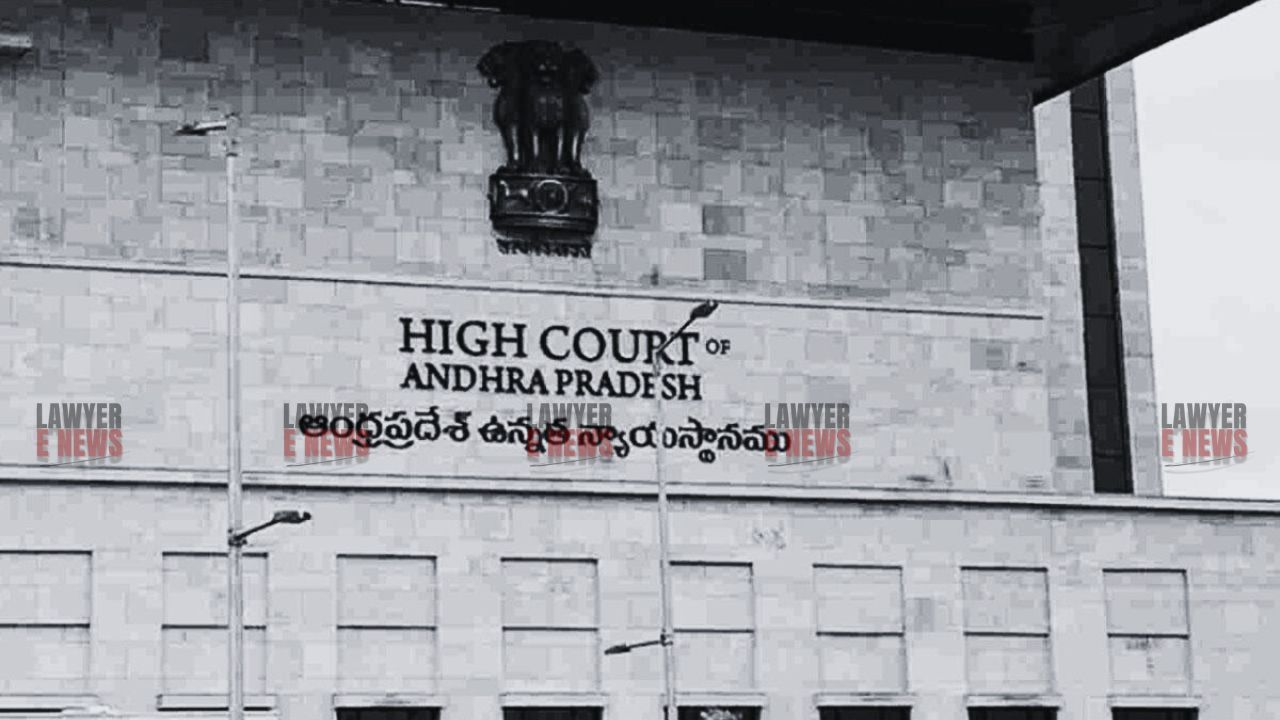-
by Admin
15 February 2026 5:35 AM



High Court emphasizes necessity of judicial review in anticipatory bail applications involving alleged caste atrocities, grants bail to MLA Sri Settipalli Raghurami Reddy. The Andhra Pradesh High Court has granted anticipatory bail to Sri Settipalli Raghurami Reddy in connection with a caste atrocity case. The judgment delivered by Justice Dr. V.R.K. Krupa Sagar highlights the necessity of judicial examination in applying sections 18 and 18A of the SC and ST (Prevention of Atrocities) Act, 1989, when considering anticipatory bail applications.
Sri Settipalli Raghurami Reddy, a 78-year-old sitting MLA, was implicated in an incident that occurred on May 13, 2024, at a polling booth in Chinna Guravalur Village, Chapadu Mandal, YSR Kadapa District. During the state assembly and parliamentary elections, Reddy, along with approximately 100 others, allegedly participated in an attack on opposition party agents. The accusations included abuse by caste name and physical assault, leading to severe injuries. The charges were filed under Sections 147, 148, 324, 307 read with 149 IPC, and Sections 3(1)®(s) and 3(2)(v) of the SC and ST (Prevention of Atrocities) Amendment Act, 2015.
Justice Sagar noted that the allegations against Reddy did not demonstrate direct involvement in the criminal acts. “The presence alone of the petitioner at the crime scene does not establish actus reus for the alleged offences,” the judgment stated. The court observed that Reddy neither wielded a weapon nor verbally abused the victims by their caste names.
The court discussed the implications of sections 18 and 18A of the SC and ST (Prevention of Atrocities) Act, which generally bar the application of Section 438 CrPC for anticipatory bail. Justice Sagar referred to previous rulings, emphasizing that judicial scrutiny is required to determine whether the allegations prima facie indicate the commission of an offence under the Act. “If no prima facie offence is made out, the bar created by sections 18 and 18A shall not apply,” the judgment cited from Prathvi Raj Chauhan v. Union of India.
The court acknowledged the political context of the incident, highlighting that the confrontation arose from political ill feelings during the elections. The judgment also considered the petitioner’s age, status, and lack of direct involvement, finding no justification for custodial interrogation. “The entire investigation is completed and the charge sheet was filed, rendering custodial interrogation unnecessary,” the court noted.
Justice Sagar remarked, “It is permissible under law to consider his application for bail in anticipation,” given the absence of direct evidence linking Reddy to the violent acts.
The High Court’s decision to grant anticipatory bail to Sri Settipalli Raghurami Reddy underscores the importance of judicial examination when applying the SC and ST (Prevention of Atrocities) Act’s provisions. By emphasizing the need for a thorough evaluation of the facts and allegations, the judgment sets a precedent for future cases involving political and caste-related conflicts. The court’s directive ensures that legal proceedings continue independently, without influence from the anticipatory bail order.
Date of Decision: July 23, 2024
Sri Settipalli Raghurami Reddy vs. The State of Andhra Pradesh and Others
